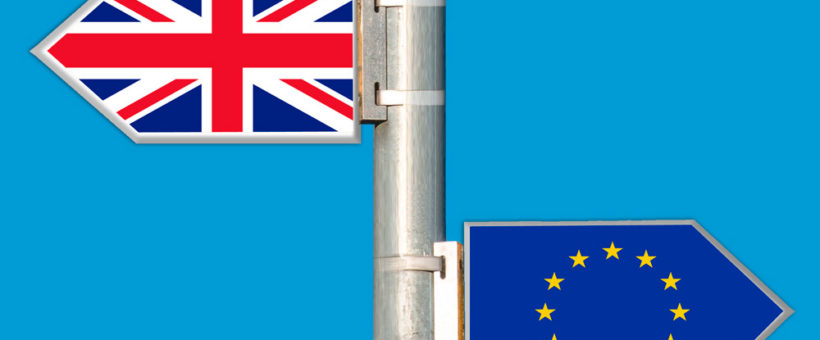Brexit: What’s it all about?
Those who know me might have noticed I was born in the UK. Apparently this makes me an expert on the recent Brexit events. Many people have asked me “What’s this all about, Jules?”. So… here is my take on it. You are welcome to disagree with me on it!
I’ll be blunt on my view: Worst. Vote. Ever.
This topic is waaaaay too long for a blog post. I’ll set the scene today and come back to it next time.
[one_half]
The 10-second version:
What’s now the European Union started shortly after WWII as the “European Coal and Steel Community (ECSC)” between 6 countries, and has since grown out of all recognition. It now comprises 28 countries, has a population greater than North America, and is much more than an industry trading group. The UK joined in the 1970s, but has always had an ambivalent relationship with its European partners. A couple of years ago, then-UK-PM David Cameron promised a referendum on continued membership. The referendum took place on June 23, and 52% of people voted “Leave”, not “Remain”.[/one_half][one_half_last]
Hardly a decisive majority, then.
You’re right – although obviously Canada knows something about close votes. However, in this case, within a week, several million people had signed online petitions asking for a do-over. Their reasons: Either “I didn’t vote, and now want to vote to stay”, or “I voted to leave as a protest but didn’t think we’d actually do it”. Oops.
Too bad. This is going to happen, with the process unwinding over the next 2 years. The only questions are: What will be terms of the divorce, and how will the relationship look in future?[/one_half_last]
Be careful what you wish – or vote – for!
I’m confused. Please back up.
Fair enough. As I’ve said, it started as a forum for cross-border collaboration in strategic industries. However, it then grew into a deeper economic pact – and then became an exercise in integration.
Don’t forget where this started: In the 1950s, Europe had just been through the most traumatic experience possible. The intent – increasingly explicit – was to bind the continent together such that war between the nations became unthinkable.
Over time, the ECSC turned into the “European Economic Community”. This was when the UK signed up. No interest in getting involved in a big European project – hey, we’re safe on our island – but we’ve always been traders, haven’t we? (Kinda. It helps when you’re the imperial power.)
Then, things grew. More countries joined. In the mid-80s, everybody signed up for a free-trade agreement – like NAFTA, but more so. So far, so good.
Then things got out of hand, at least from a certain perspective. Also in the 80’s, countries committed themselves to “ever closer union”, the concept of a single currency, and elimination of national borders. Plus, member states agreed to the pan-European regulation of an increasing number of things. Oh, and add in significant protection for farmers (mostly on the continent) and a growing budget to pay for all of this – to which Britain was one of the larger contributors.
At this point…. Britain started to be a wall-flower. Margaret Thatcher demanded “her money back”. Britain demanded – and won – the right to opt out from things like the single currency and various pan-European social legislation. Several other smaller countries had the same views, but were happy for Britain to lead the resistance.
Around about now, the bloc turned into the European Union (or EU). Other countries were lining up to join – mostly on the poorer periphery of Europe, or those escaping from the communist yoke. Well, why wouldn’t they? Various treaties and compacts gave them very generous handouts, to help bring their standard of living up to the European average, as well as high-quality governance. Who wouldn’t like brand new highways, all paid for by Europe?
Democracy – The leaders know best.
It’s worth noting that much of the integration was driven by the unelected European Commission – a body with appointees from each country. There was (and remains) an elected European Parliament, but it has trivial powers and is mostly viewed as a waste of money. So, limited democratic accountability.
At this point, it also became clear that the project had perhaps gotten ahead of its popular support. Over the 80s and 90s, referenda in several countries rejected treaties intended to move things forward. But this didn’t kill the project. Instead, the people had to be asked to vote again with a slightly reworded question until they got the right answer.

So where’s Europe now?
Well, if you consider the original goal – to make war unthinkable – the European project has been a big success. Most internal borders disappeared. Most countries now use the same currency. I have several friends who describe themselves as “European” first.
But… facts get in the way. The financial crisis in 2007-8 hit some countries much harder than others – and being in the single currency limited what their governments could do. So, several countries have suffered deep recessions and been in economic crisis for nearly 10 years. Many of them could use significant economic reform, but that’s politically tricky and hasn’t really happened. So, richer countries such as Germany have been bankrolling poorer countries such as Greece for a while now. This has – not surprisingly – put pressure on the Euro and the concept of European solidarity.
And… Syria and the “Arab Spring” happened. Millions of refugees fled to countries on the southern edge of Europe to escape the horrors of war or political oppression. Those countries receiving the refugees have – not surprisingly – wanted their neighbours to take their share. But these requests have had limited success.
So…. Europe is having a rough time right now. The single currency has been threatened by the turmoil in Greece and other countries, the free movement of people is threatened by the refugee crisis. Add in stagnant populations and economies that refuse to grow, and it’s hardly the best of times.
Thought we were talking about Brexit?
We will. Next time. Jules

